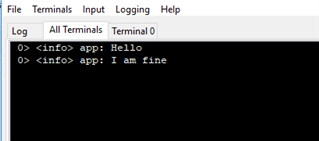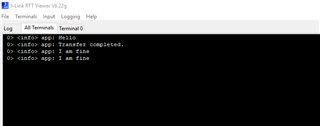I have my system working with softdevice compiled in but not enabled. System communicates with external chip using SPIM peripheral, everything is working fine until I enable the softdevice.
As soon as I issue
ret_code_t err_code;
err_code = nrf_sdh_enable_request();
the first spim_xfer ends with segmentation fault:
#0 0x000257ae in ?? ()
#1 <signal handler called>
#2 nrf_spim_event_clear (spim_event=NRF_SPIM_EVENT_END, p_reg=<optimized out>) at /home/miceuz/nrf/nRF5_SDK/modules/nrfx/hal/nrf_spim.h:517
#3 spim_xfer (flags=0, p_xfer_desc=0x2003ff9c, p_cb=0x20004220 <m_cb+44>, p_spim=<optimized out>) at /home/miceuz/nrf/nRF5_SDK/modules/nrfx/drivers/src/nrfx_spim.c:501
#4 nrfx_spim_xfer (p_instance=<optimized out>, p_xfer_desc=0x2003ff9c, flags=0) at /home/miceuz/nrf/nRF5_SDK/modules/nrfx/drivers/src/nrfx_spim.c:607
#5 0x0000000e in ?? ()
#6 0x000373b0 in _fini ()
I am sure I am missing something simple here, but I can't remember what. Any tips?


